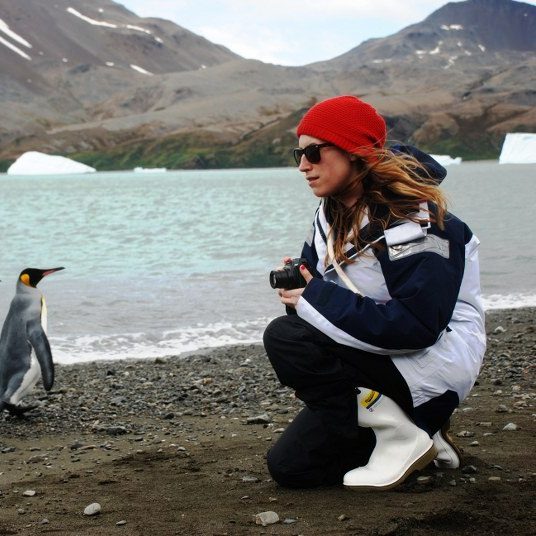
Doctors writing prescriptions for island getaways may sound like a fantasy, but new research exploring the health benefits of tourism may turn this dream into a future reality.


Doctors writing prescriptions for island getaways may sound like a fantasy, but new research exploring the health benefits of tourism may turn this dream into a future reality.
Aside from “the printer is broken,” “I need a vacation” has to be one of the most frequently uttered phrases in offices around the world—daydreaming about an escape is a habit many of us share. And while we certainly want to travel, do we really need to travel?
A team of researchers from Edith Cowan University in Australia is pondering similar questions by exploring the potential for travel to enhance our quality of life. While still in its infancy, this research may end up reframing travel as an activity that’s essential to our well-being—and far more than just something we do for fun.
Anecdotally, many people say that vacations improve their mental health. Studies also reflect this. For example, recent research indicated that tourists with sub-optimal health who engaged in domestic travel more frequently demonstrated better mental health.
“This correlation provides preliminary support for the role of tourism in individuals’ health. This also shows tourism as a possible way to improve people’s mental health in general,” says Dr. Jun Wen, a Chinese researcher currently living and working at Edith Cowan University.

Wen explains that the cross-disciplinary research team he’s a part of consists of academics across tourism, psychology, marketing, and medical science, all collaborating to study the potential benefits of travel for people with a range of conditions, including dementia and psychological disorders such as depression. “Travel is a familiar and often favorite part of our leisure activities, so it’s exciting that it could offer medical benefits,” he says.
While it may seem like a bit of a no-brainer that trips make us feel good, it’s important to understand the factors behind why this might be the case. Yes, watching a beach sunset is infinitely more pleasing than sitting in hellish traffic while commuting home from a long day working in a cubicle… But there’s more to it than that.
For instance, many common elements of travel (such as increased exercise and more exposure to sunlight and fresh air) are linked to the increased production of serotonin, a neurotransmitter linked to mood stabilization.
For many of us, putting together an itinerary, bookmarking trips and researching destinations feels as therapeutic as travel itself. “All tourism experiences offer elements of anticipation and planning, both of which stimulate brain function,” says Wen, who adds that group travel may also provide psychological benefits associated with forming new connections.
Exercise is another hallmark of travel. Even if you’re not trekking the Himalayas, just exploring a new city on foot boosts your daily step count. With physical activity frequently recommended for people diagnosed with depression, anxiety and dementia, travel (along with other therapies) could just be a crucial part of maintaining your well-being.
Dr. Deb Mills, doctor and medical director of the Travel Medicine Alliance (TMA), agrees that travel can be highly beneficial for our mental and physical health but staying well while traveling is key.
“Travel is great for you, provided you don’t get sick,” says Mills, who also studied a Master of Public Health and Tropical Medicine at James Cook University in Queensland.
Even though travel therapy may sound promising, we’re a long way off from “travel” being scribbled onto the doctor’s prescription pad being the norm.
From picking up a parasite to experiencing a savage bout of food poisoning, getting ill when you’re traveling sucks. But for those of us with chronic conditions or autoimmune diseases like lupus or celiac disease, the stakes are even higher.
“People whose immune system is weakened are usually fine until something goes wrong. Any weakness in your system will be worsened if you get a bacterial or viral infection,” says Mills.

Mills also believes your choice of travel destination could play a vital role in whether your trip is beneficial (or detrimental) to your health, especially if you have a pre-existing condition. While health advice should be tailored to each individual, there are certain corners of the world that carry more risk than others.
“The tropics generally have more diseases. The germs just love the tropics. Dengue Fever loves the tropics,” says Mills, adding: “Leptospirosis [a zoonotic disease endemic in countries with humid, tropical climates] is another one. So if people with medical conditions are going into the jungles of Borneo or Papua New Guinea, they’re going to be much more at risk.”
Remote destinations are also riskier. Apart from having less robust healthcare systems, remote and rural areas are more likely to have diseases like malaria. It’s for this reason that people should get specialized advice before considering a trip to a remote part of the world.
“The more you get off the beaten track, the more these types of diseases can be a problem. Things can get very dangerous, very quickly in some parts of the world,” says Mills.
Even though travel therapy may sound promising, we’re a long way off from “travel” being scribbled onto the doctor’s prescription pad being the norm. With so many different variables and factors to consider, more research is needed to determine the therapeutic value of travel.
Your health status, destination, itinerary and the length of a trip could make the difference between arriving home refreshed and energized—or drained and more stressed than when you left. What you personally find to be relaxing and rejuvenating also plays a role in the benefits of travel. We all have unique preferences when it comes to destinations and activities.
Today’s research could lay the foundations for tomorrow’s generation to include travel therapy in their health management plans.
If you’ve got a mental or physical health condition, it’s likely that you’ll be more fatigued by the demands of travel. Time zone changes, jetlag, fluctuating temperatures and carrying heavy luggage around can really take a toll. This might mean you’re better off taking shorter trips, breaking up long flights with a stopover (or avoiding flying altogether), or following a flexible itinerary that factors in more rest days.
Public health agencies around the world currently provide guidelines for physical activity, nutrition and sleep. With the health benefits of tourism being investigated, could governments start recommending travel as a public health measure in the future? Maybe.

We’re not there yet, but today’s research could lay the foundations for tomorrow’s generation to include travel therapy in their health management plans.
“We’re working hard to provide more evidence-based insights to inform public health authorities and other stakeholders to integrate tourism into public health recommendations in the future, based on professional guidelines,” says Wen.
An avid traveler who has visited all seven continents, Mills understands how traveling can reduce stress, ward off burnout and boost your mood. She encourages people to travel where and when they can, depending on their circumstances.
“Most of the health risks are preventable if you get the right advice, right medications, and right vaccines,” she says. “So it’s not about saying, ‘Don’t go.’ It’s about saying, ‘Be prepared.’”
Jo Stewart is an Australian travel writer who lives in Melbourne, but spends an inordinate amount of time at airports. She has visited all seven continents and is comfortable mixing it up at both ends—and everywhere in between—of the travel spectrum.
Full Bio





Can't find what you're looking for? Try using these tags: